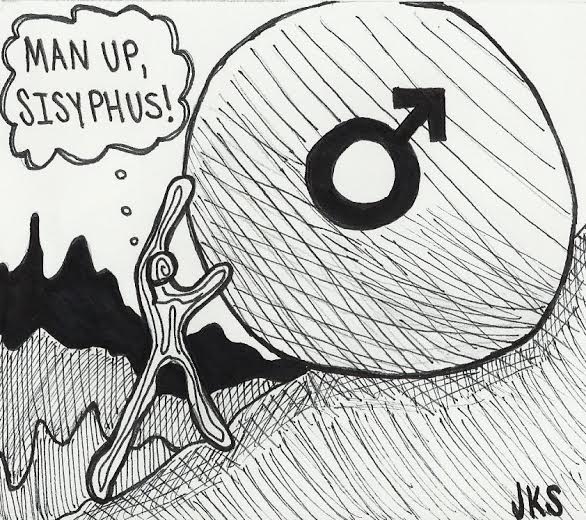
Julie Smitka, sophomore in physics
When I tell people that one of my majors is Women’s and Gender Studies, I generally get a retort that goes something like this: “Why is there no men’s studies? That’s discriminatory/unfair/ridiculous/etc.” Though that question obviously ignores the presence of “gender” in the title of Women’s and Gender Studies, it reveals how deeply rooted the idea that men’s and women’s studies couldn’t possibly intersect is—and thus men’s studies would have to be a completely different field of expertise. Besides the fact that the majority of human history has been men’s studies thus far, with women and other minorities marginalized and kept from the history books, this is simply not accurate. In fact, men’s studies came about in the 1970s as a direct result of the feminist activism prevalent in that decade. As a Women’s and Gender Studies major, I can state that although it is crucial that women’s studies exist, giving the floor to the other half of history and the important study of intersectionalities across the globe, men’s studies is a part of the gender movement, and holds (and deserves) a specific place in the gender departments of higher learning. To understand how societies of past and present have failed women, we must understand how they have also failed men.
The myth of Sisyphus—a figure in Greek mythology doomed to push a boulder up a hill all day in the heat for eternity, only to have it roll to the bottom again before the morning—is commonly used to describe the unattainable nature of masculinity. The way our society and culture stands today, we gender and separate children from their earliest moments on Earth, in pink and blue swaddling clothes—and, in the case of boys, proceed to teach them at a young age that it is not okay to cry, and remind them that they need to toughen up or man up in situations across the board. The ideal of masculinity is as unrealistic as the ideal of femininity—no one completely performs to the tee the expectations that have been created and maintained by all who engage with them. Much of this can be attributed to social learning theory as it relates to the everyday.
Essentially, social learning theory refers to learning through observation and subsequently acting out learned behaviors, according to psychology.com. In the realm of gender studies, social learning dictates how we perform actions that are gendered and classified by society as masculine or feminine. The study of men and masculinity, particularly how social learning theory relates to performed masculine behavior, is essential to understanding how gender affects each and every one of us. If that isn’t crucial to Women’s and Gender Studies, I don’t know what is.
Feminism has never been about overtaking men or eliminating them from existence. Part of the grievances laid against the masculine identity can be traced to the failings of society toward men as well as women—as with most things, humans have brought about their own troubles and become ensnared in a seemingly never-ending maintenance of the harmful, unachievable ideals. Kathleen Hanna, of the feminist new-wave punk band Bikini Kill, summed up men and masculinity as it relates to feminism thusly: “To me, feminism is also about liberating men from the stereotypes that they have to be the breadwinners, that they have to be a certain way, and they can’t explore their feminine sides. That’s crippling men. That’s crippling how fully men can experience their emotional lives and everything.”
I wholeheartedly agree.
Send your thoughts to Justine at technician-viewpoint@ncsu.edu.